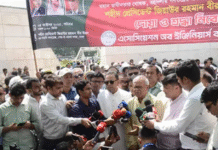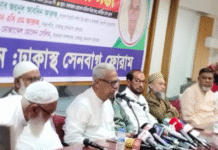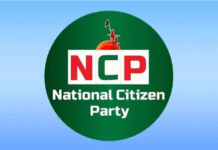The members of parliament in Bangladesh are entrusted to make laws and to formulate policy on any issue including development. It is not their job to implement those development projects. This separation of authority is a universal practice, for all countries and communities. But during the rule of the BNP-Jamaat coalition government in Bangladesh, the practice of handing over funds to MPs emerged.
The objective was to implement local development projects. That was the beginning of an opportunity to curb local government representatives’ power by the MPs. It clearly created division among the people’s representatives.
It is unfortunate that this trend has been institutionalised over the last decade. This has created a gap between the elected representatives of the local government and the MPs. The constitutional concept of local development by local representatives has been obstructed. It did not stop here.
Jatiya Sangsad can tackle the matter in two ways now. First, it may end the discussion by politically attacking the TIB as in the past. Second, it can form a parliamentary inquiry committee.
According to TIB’s research, about one-third of the work done to develop rural infrastructure by the MPs is of poor quality. On top of that, they even take commissions for the work and even payment of bills.
We believe the policy of involving MPs in the implementation of development projects is not only wrong, it proves to be terribly detrimental to the public interest.
Jatiya Sangsad can tackle the matter in two ways now. First, it may end the discussion by politically attacking the TIB as in the past. Second, it can form a parliamentary inquiry committee. In the Fifth Parliament, we witnessed the formation of such a committee of inquiry into allegations of corruption by a minister, the publication of a huge report on it and the lively discussion in parliament. That practice could not proceed further, but it needs to be revived.
We believe the policy of involving MPs in the implementation of development projects is not only wrong, it proves to be terribly detrimental to the public interest. No democracy in the world expects MPs or ministers or their dependents to engage in any form of business or unconventional financial transactions with the state or government. That is why in many countries MPs have to make statements about conflicts of interest while taking oath. There is a written code of conduct for MPs. They are removed from the parliament in many countries for violating these rules.
It is not acceptable in any way what is happening in Bangladesh. The situation could improve somewhat if it were made mandatory for public representatives at all levels to adhere with a written code of conduct and to publish a statement of conflict of interest. It is important to find a political solution to this. It would be difficult to change the situation if we only look to institutions like the Anti-Corruption Commission (ACC).









